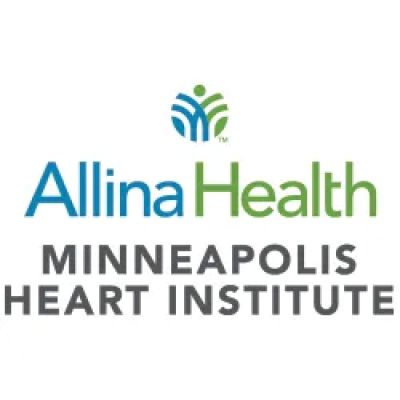- 1. What Is Heart Disease?
- 2. Common Warning Signs of Heart Disease
- 3. Risk Factors for Heart Disease
- 4. When to See a Doctor About Heart Disease
- 5. How to Protect Your Heart Health
1. What Is Heart Disease?
Heart disease is a term used to describe a range of conditions that affect the heart, including coronary artery disease, heart attack, heart failure, arrhythmias (irregular heartbeats), and more. It is one of the leading causes of death worldwide and can significantly impact an individual's quality of life. While some forms of heart disease are hereditary, many are preventable by managing lifestyle choices such as diet, exercise, and stress management.
The heart is a vital organ responsible for pumping blood throughout the body, delivering oxygen and nutrients to tissues, and removing waste. When the heart is affected by disease, its ability to perform these functions is compromised, which can lead to serious health complications.

2. Common Warning Signs of Heart Disease
Heart disease often develops slowly, and many people may not realize they are at risk until they experience serious symptoms. However, there are several warning signs that could indicate potential heart issues. Recognizing these symptoms early can be life-saving. Here are some common warning signs of heart disease:
- Chest Pain or Discomfort: This is one of the most well-known symptoms of a heart attack. It can feel like pressure, tightness, squeezing, or fullness in the chest. Some people may experience sharp, stabbing pain, while others may have a dull ache.
- Shortness of Breath: If you find yourself feeling unusually short of breath while doing simple activities or even at rest, it could be a sign of heart problems, especially if it’s accompanied by chest discomfort.
- Fatigue: Feeling unusually tired or weak, especially when performing activities you used to do with ease, could be a warning sign of heart disease. It’s particularly concerning if fatigue comes on suddenly and doesn’t improve with rest.
- Lightheadedness or Dizziness: Feeling faint, lightheaded, or dizzy could indicate a problem with blood flow or heart rhythm. These symptoms can occur before or during a heart attack or arrhythmia.
- Pain in Other Areas of the Body: Heart disease can cause pain or discomfort in areas other than the chest, including the arms, neck, jaw, back, or stomach. This type of referred pain is common in heart attacks, especially in women.
If you experience any of these symptoms, it’s important not to ignore them. Contact a healthcare provider immediately for further evaluation and guidance.
Atlanta Heart Specialists
atlanta heart specialists
4375 Johns Creek Pkwy #350, Suwanee, GA 30024, USA

3. Risk Factors for Heart Disease
There are several factors that can increase your risk of developing heart disease. Some of these risk factors are within your control, while others are not. Being aware of these risk factors is an important step in protecting your heart health. The most common risk factors include:
- High Blood Pressure: Hypertension (high blood pressure) can damage the arteries over time, increasing the risk of heart disease. Regular monitoring of blood pressure and managing it with medication or lifestyle changes is essential.
- High Cholesterol: Elevated levels of cholesterol in the blood can lead to the buildup of plaque in the arteries, restricting blood flow to the heart. A healthy diet, exercise, and medication can help manage cholesterol levels.
- Smoking: Smoking damages blood vessels and reduces the oxygen in the bloodstream, significantly increasing the risk of heart disease. Quitting smoking is one of the best ways to improve heart health.
- Obesity: Carrying excess weight, particularly around the abdomen, increases the risk of developing heart disease, diabetes, and high blood pressure. Maintaining a healthy weight through a balanced diet and regular exercise is key to preventing heart disease.
- Diabetes: People with diabetes are at a higher risk of developing heart disease, as high blood sugar can damage blood vessels and increase the likelihood of plaque buildup in the arteries.
- Family History: A family history of heart disease can increase your risk, especially if a close relative developed heart problems at an early age. If you have a family history, it’s important to be proactive about your heart health.
- Lack of Physical Activity: Leading a sedentary lifestyle can contribute to weight gain, high blood pressure, and poor circulation, all of which increase the risk of heart disease. Regular physical activity is crucial for maintaining heart health.
By understanding your risk factors, you can take steps to minimize your chances of developing heart disease.
4. When to See a Doctor About Heart Disease
If you experience any of the warning signs of heart disease mentioned earlier, it’s important to seek medical attention right away. Early detection can prevent the progression of heart disease and improve the chances of successful treatment.
Even if you don’t have symptoms, it’s important to see a doctor for regular check-ups, especially if you have any risk factors for heart disease. Regular screenings for blood pressure, cholesterol levels, and blood sugar can help detect issues before they become serious. If you are at high risk for heart disease, your doctor may recommend lifestyle changes, medications, or further tests to monitor your heart health.
5. How to Protect Your Heart Health
Maintaining good heart health is essential for overall well-being. Here are some tips to help keep your heart in top shape:
- Eat a Heart-Healthy Diet: Focus on a diet rich in fruits, vegetables, whole grains, lean proteins, and healthy fats. Limit saturated fats, added sugars, and sodium to help reduce the risk of heart disease.
- Stay Active: Engage in at least 150 minutes of moderate-intensity exercise per week, such as brisk walking, swimming, or cycling. Regular physical activity strengthens the heart and improves circulation.
- Quit Smoking: If you smoke, quitting is one of the best things you can do for your heart. Seek support from your healthcare provider to help with smoking cessation.
- Manage Stress: Chronic stress can contribute to heart disease by increasing blood pressure and leading to unhealthy habits like overeating or smoking. Practice relaxation techniques like deep breathing, yoga, or meditation.
- Get Regular Checkups: Regular visits to your healthcare provider are essential for monitoring risk factors like blood pressure, cholesterol, and blood sugar levels. Early intervention can help prevent heart disease from progressing.
By adopting a heart-healthy lifestyle and staying vigilant about warning signs, you can significantly reduce your risk of heart disease and improve your overall health. If you’re looking for more resources or advice on maintaining heart health, visit HeartCare Hub for expert guidance and products designed to help you stay healthy.





















Deborah Heart and Lung Center
deborah heart and lung center
200 Trenton Rd, Browns Mills, NJ 08015, USA